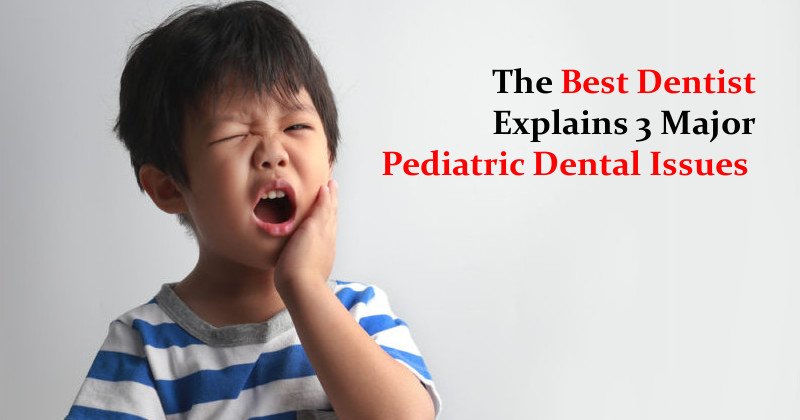Research today proves that the mouth is the dirtiest part of the human body with over 6 Billion Bacteria and around 700 different species of them. This more than enough reason to join the Club of highly Conscious people who take their effort and time to rinse their mouth after every meal and brush their teeth regularly.
If anything, we should be really taking good care of our oral health for personal and intimate reasons and looking attractive and amiable for your corporate settings.
According to a recent study by FDI World Dental Federation, oral diseases affect over 3.9 billion people worldwide along with 44% of the world’s population suffering from untreated tooth decay. Furthermore, 60-90% of schoolchildren and nearly 100% of adults have tooth decay that often leads to discomfort and pain.
Many oral conditions are considered the 4th most expensive treatments, with $110 billion spent every year on oral healthcare in the United States alone. Some €79 billion during 2008-2012 were spent in the European Union.
5 Hormonal Changes in Women that Affect Oral Health
When it comes to hormonal changes that affect oral health, women are the most susceptible, and this leads to a lot of discomfort in their lives. There are five hormonal changes in women that deteriorate oral health drastically. Let’s take a quick look at each one of them:
1) During Puberty
Puberty is the process of physical changes through which a child’s body matures into an adult, capable of sexual reproduction. Girls undergo puberty earlier than boys, and this is around 10-14 years of age. During puberty, the female hormones, including estrogen and progesterone, are produced, leading to increased blood flow to the gums.
This causes the gum tissue to become highly reactive to any plaque in the teeth and specifically to the irritants found in the plaque. During such an event, the gum tissue becomes red, swollen, and tender to the point that brushing and flossing your teeth can cause them to bleed.
The best possible remedy is to make sure that you maintain proper oral hygiene. Brush with fluoride toothpaste, floss at least once a day, and if any problems persist, then immediately see your doctor.
2) Monthly Menstrual Cycle
Often called ‘periods’ the 28-day menstrual cycle occurs usually starts at 12 years of age and continue to occur once every month until menopause which is usually at 45 years of age. During periods there are hormonal changes occurring in the body, particularly noted by the increase in progesterone.
This can lead to some women experiencing oral changes that can include the development of canker sores, bright red swollen gums, bleeding gums, and swollen salivary glands.
During this time, a common ailment is known as mensuration gingivitis, which results in bleeding gums and sores inside the cheek. However, all of this clears up once the period for the month is over. Self-care or visit to the dentist if necessary, are best remedies.
3) Oral Contraceptive Pills
Talking about hormonal changes, apart from those that occur naturally, there are self-induced ones, such as taking birth control pills or contraceptive medication as they are widely known. While new birth control pills cause lower estrogen and progesterone levels, you still need to inform your dentist about them.
This is because women who take contraceptive pills can suffer from a painful complication known as dry socket during a tooth removal process. Other than that, it is common knowledge that girls who take birth control pills have an increase in progesterone level, which can lead to inflamed gum tissues. This is due to the exaggerated reaction of your body towards the toxins produced from plaque.
4) Pregnancy
Pregnancy is a tough time, and there is no doubt about it that every pregnancy is essentially different for every woman, a fact that no one these days likes to address. It is a complex process, and while similarities of problems and challenges may exist, there are still many dissimilarities that make them different.
Hormonal changes are undoubtedly significant during pregnancy, which can lead to gum disease during second to eight months of pregnancy, often called pregnancy gingivitis. During pregnancy, many women can experience a hormonal hyperdrive. This is why visiting the dentist is extremely important along with increase cleaning of your mouth.
5) Menopause
Menopause is a stage in a woman’s life cycle where periods stop from happening. This usually occurs during or after 45 years of age as a woman stops producing ovaries, which includes the production of hormones such as estrogen and progesterone coming to a halt. Several things can happen during this time concerning oral health.
This can include altered taste, burning sensations, greater sensitivity to cold and hot foods, dry mouth, and a much greater risk to loss of bone density specifically in the jaw. The decrease of saliva in the mouth is extremely dangerous and leads to greater problems, hence urgently meeting with your dentist is the best option.
Oral Health Problems Caused by Hormonal Imbalance
Apart from the hormonal changes in women during several stages of their life cycle, let’s take a quick look at what you can do about the following health problems.
1) Bone Loss
Bone loss is perhaps the most excruciating problem, and as horrible as it sounds your actions to rectify this troubling cause needs immediate action. Bone loss can be prevented by giving your jawbone a replacement tooth with a root that can exert the same or similar pressure as natural teeth.
Apart from this, there are many other dental procedures that can help, including bone grafting and sinus uplift, to name a few. Young learners who are looking for the best essay writing service should also take proper care of their oral hygiene as it can indefinitely affect their learning and performance.
2) Dry Mouth
Also known as Xerostomia, dry mouth occurs when the salivary glands don’t make sufficient saliva to prevent drying of the mouth. According to Mayo Clinic, you can do the following:
- Abstain from using mouthwash that contains alcohol and use prescribed mouthwashes for dry mouth only.
- Breathe through your nose and not your mouth.
- Chew sugar-free gum.
- Limit the use of caffeine.
- Slip water regularly.
- Stop tobacco use altogether.
- Try over-the-counter saliva substitutes.
3) Gum Disease
Also known as periodontitis, the best way to treat gum disease is to practice oral hygiene. This includes brushing your teeth for about 2 minutes, the last thing at night before going to sleep and one other occasion every day.
This means using toothpaste that has the right amount of fluoride, flossing your teeth, prohibiting smoking, and regularly visiting your dentist.
Conclusion
Taking good care of our oral hygiene should be an absolute must. There are many doctors and professionals in the field of medicine that have studied oral health and claim that it can relate and affect your entire body. Bad oral hygiene is also linked to increased heart problems, where bacteria from the mouth can travel to the heart and clog the arteries resulting in a stroke.
The key to good oral hygiene is in your hands. I hope this post was able to offer you some meaningful insights as to how hormonal changes in the body can affect your oral health. Wishing you all the best for your life ahead, make sure that you keep a healthy diet and keep sugar intake to a minimum. Keep smiling and Cheers!
Author Bio
Samantha Kaylee is currently working as a Blogger at Crowd Writer and Dissertation Assistance. This is where higher education students can acquire assignment help from professionals specializing in their field of study. During her free time, she likes to practice mindful yoga and tai chi early in the morning.











